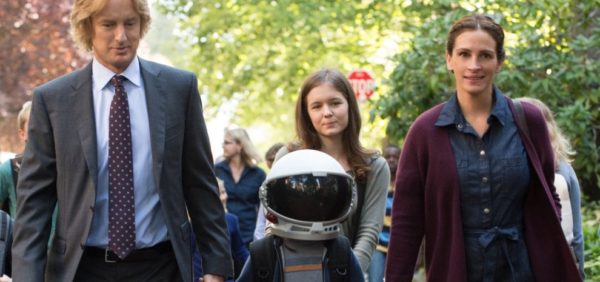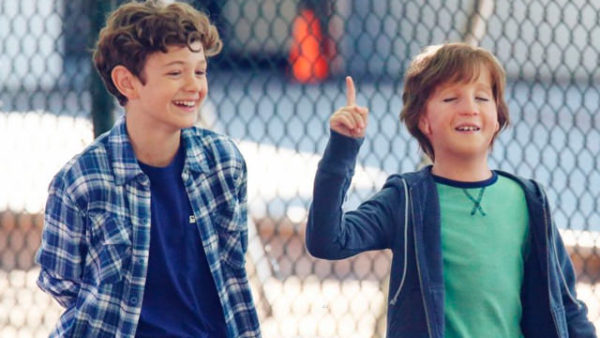Wonder Review
Although I haven’t read R.J. Palacio’s best-selling book, it’s pretty easy to see why “Wonder” has caught on with kids and adults alike. Its message is clear and simple, conveyed in a way kids can understand with some of the nuance that will resonate with adults. The film follows suit in the hands of someone who knows what to do with a beloved book, Stephen Chbosky, author of “The Perks of Being a Wallflower” and director of that big-screen adaptation.
With “Wonder,” Chbosky proves his deft storytelling ability across written and visual media. He recognizes the deep connection readers have with this story and its emotional roots, and makes sure each element of the film channels that in some way. So much of “Wonder” is contrived to tell a story about compassion and kindness, but he finds ways to bring in authenticity to every moment.
“Wonder” appears to focus on Auggie Pullman (Jacob Tremblay), a fifth grader with Treacher Collins Syndrome who enters school for the first time after having been homeschooled his whole life due to fear and insecurity around his facial differences. Yet, to use the film’s outer space metaphors, Auggie is but one bright light in the solar system of his family and community, who are also impacted by Auggie’s situation and have their own unrelated struggles.
One of the story’s most admirable qualities, in fact, is the way it doesn’t simply pile on sympathy for Auggie scene after scene and tries to impart the lesson that just because his struggles are more external and obvious to others doesn’t mean they always deserve priority treatment. The approach is more holistic, presumably because Palacio’s book is as well. By taking moments to follow the perspective (with narration) of characters in the story beyond Auggie – sister Via (Izabela Vidovic), friend Jack Will (Noah Jupe) and others – the film beautifully teaches its audiences to consider perspectives outside of their own.
Another admirable quality of the screenplay and Chbosky’s direction is the way he steers clear of melodrama. That doesn’t mean the film is devoid of clichés (is there ever a film about young boys that doesn’t involve a schoolyard scuffle?) but the conflict never erupts in a showy way. Strangely, everyone’s reasonable and resolves conflicts normally. A scene in which one character has lied to another, a lie we know will be uncovered eventually, the revealing of the truth doesn’t lead to some jarring clash between the characters followed by the person who has been lied to overreacting. There’s actually some empathy involved.
Sometimes, the characters in “Wonder” do manage to have the perfect things to say; the kids are sometimes overly eloquent and the parents (Julia Roberts and Owen Wilson) are sage-like. That said, characters are still given flaws and fallibility, though some more than others. The school bully’s parents, on the other, are painfully the opposite of perfect to balance it out. A scene in which the principal (Mandy Patinkin) confronts those parents strikes a nerve and proves one of the most memorable scenes because it exposes a sad reality. The writing of the principal’s response and Patinkin’s performance are gracefully done and part of what makes the movie special.
“Wonder” has a lot of wonder-full moments and Chbosky is a more than competent architect designing and constructing them with substantial emotional payoff. The source material clearly lent itself to a higher-caliber mainstream family film, but the execution follows suit.
4/5 Stars
Wonder
Directed by Stephen Chbosky
Written by Stephen Chbosky, Steve Conrad, Jack Thorne, R.J. Palacio (novel)
Starring: Jacob Tremblay, Julia Roberts, Owen Wilson, Izabela Vidovic, Noah Jupe






0 Comments
You can be the first one to leave a comment.